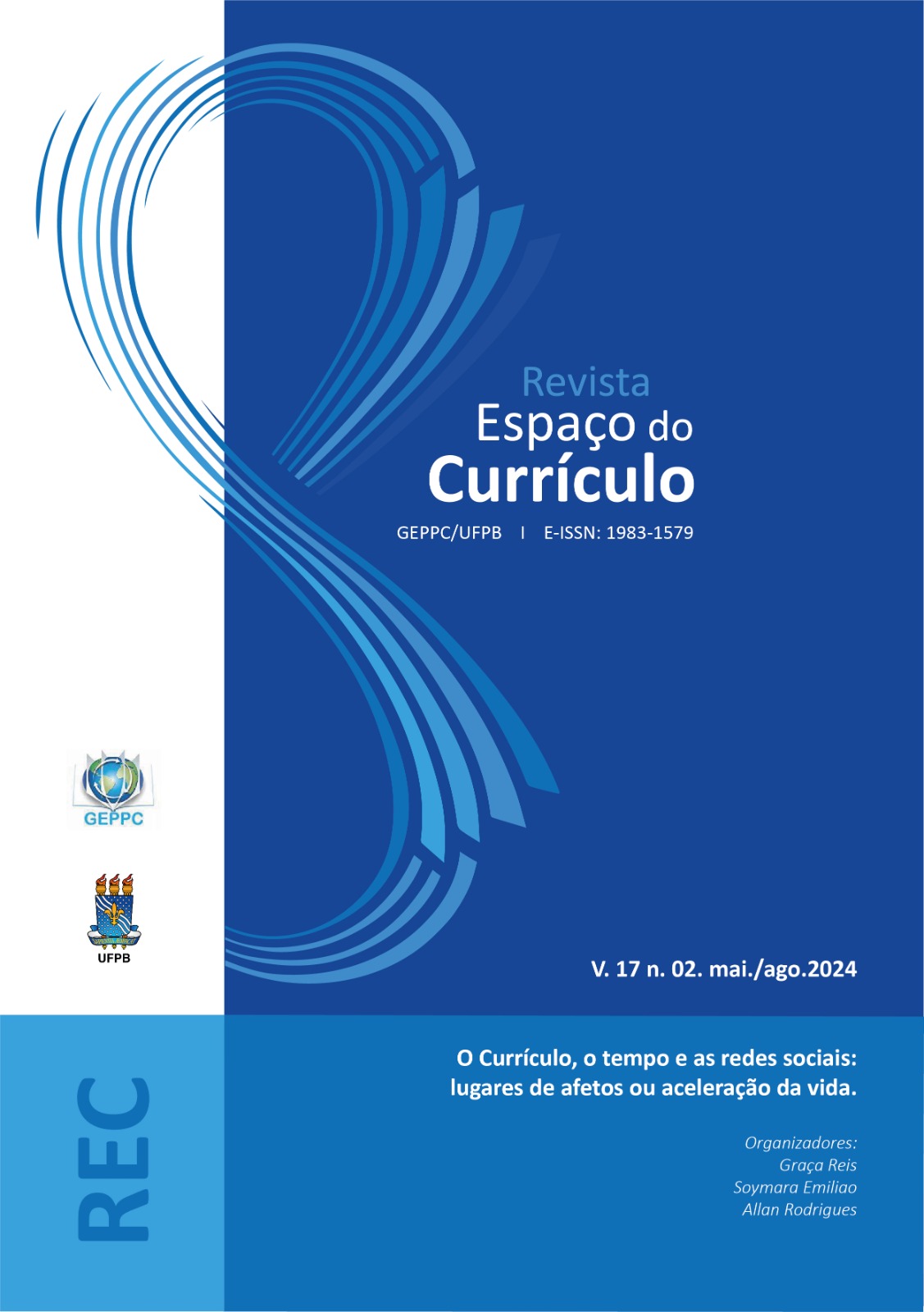CURRICULUM, TIME, AFFECTION AND TECHNOLOGIES
the desire for life
DOI:
https://doi.org/10.15687/rec.v17i2.70716Keywords:
curricula, technologies, everyday life and conversation networksAbstract
In this interview, Professor Janete Carvalho, from the Federal University of Espirito Santo, reflects on the desire for life and affections, in the relationship that contemporaneity has established between subjects, with the advent of technologies, and the consequences of these changes in the curricula thought and practiced in Brazilian schools. She created the notion of Community of Affections and Affections and, with it, referenced that the constitution of networks of conversations and actions make it possible to create new forms of community that enhance everyday school life. She points out that curricula and teachers and their narratives are like ways of saying and are constituted as expressions of singularities and ways of doing things that cross the virtual dimension. And what matters is what happens in the middle, neither at the beginning nor at the end, because he doesn't believe in an ultimate foundation that guides educators' practices. For Carvalho, the teachers who work in everyday schools are on the plane of immanence.
Downloads
Metrics
References
BRASIL. Ministério da Educação. Base Nacional Comum Curricular. Brasília, 2018.
CARDOSO, Bruno. Por que fazer uma sociologia da internet? Sobre o caso Cambridge Analytica e Facebook. Disponível em: https://ledufrj.wixsite.com/ledufrj/single-post/2018/3/25. Acesso em: 23 jul. 2024.
CARVALHO, Janete. Magalhaes.; MOREIRA, Priscila. Santos As redes de conversações entre licenciandos como agência para pensar os encontrosformação com professores: uma experiência no IFES. Linguagens, educação e sociedade, v. 24, p. 511-539, 2019.
CARVALHO, Janete. Magalhaes.; HOLZMEISTER, Ana. Paula. Potência das redes de conversações no cotidiano escolar: entre formas, forças e modos de constituição. Instrumento, Juiz de Fora, v. 15, p. 161-170, 2013.
CARVALHO, Janete. Magalhaes.. O currículo como comunidade de afetos/afecções. Revista Teias (UERJ. Online), v. 13, p. 75-87, 2012.
CARVALHO, Janete. Magalahes.; DELBONI, Tania. Mara. Zanotti. Guera. Frizzera. Ética e estética da existência: por um currículo 'estranho'. Currículo sem Fronteiras, v. 11, p. 170-184, 2011.
ESPINOSA, Baruch. de. Ética. Tradução: Tomaz Tadeu da Silva. 2ª edição. São Paulo: Editora Autêntica, 2007.
HAN, Byung-Chul. Sociedade do cansaço. Tradução de Enio Paulo Giachini. 2 ed.. Petrópolis, Vozes, 2017.
HARDT, Michael.; NEGRI, Antonio. Multidão: guerra e democracia na era do Império. Rio de Janeiro: Ed.Record, 2005.
MATURANA, Humberto. Emoções e linguagem na educação. Tradução: José Fernando Campos Fortes. - Belo Horizonte: Ed. UFMG, 1998.
MASSCHELEIN, Jan; SIMONS, Maarten. Em defesa da escola – Uma questão pública. Trad. Cristina Antunes. Belo Horizonte: Autêntica, 2013.
MERÇON, Juliana. Aprendizado ético – afetivo: uma leitura spinozana da educação. São Paulo: Alínea, 2009.
Downloads
Published
How to Cite
Issue
Section
License
Copyright (c) 2024 Curriculum Space Journal

This work is licensed under a Creative Commons Attribution 4.0 International License.
By submitting an article to Curriculum Space Journal (CSJ) and having it approved, the authors agree to assign, without remuneration, the following rights to Curriculum Space Journal: first publication rights and permission for CSJ to redistribute this article. article and its metadata to the indexing and reference services that its editors deem appropriate.
















